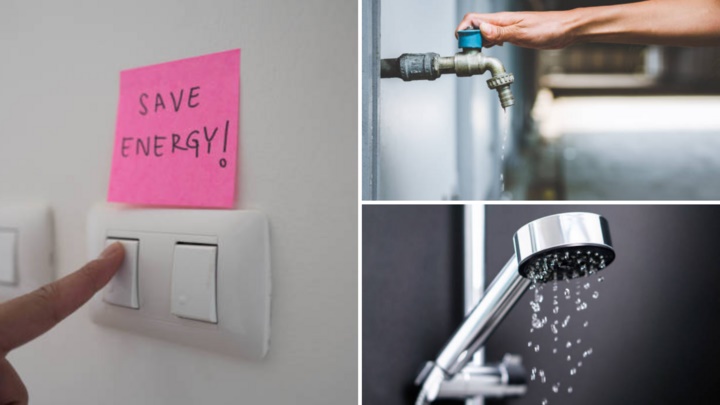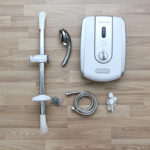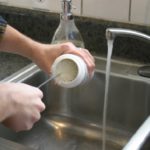Using electricity and water are basic daily needs for every individual and family. However, utility bills often cause headaches as they consume a significant portion of living expenses and must be paid immediately, without delay. Therefore, applying tips to save electricity and water is necessary, not only to reduce costs for the family but also to lighten the burden on the environment.
Effective tips for saving electricity
To prevent the electricity bill from making you cringe every month, consider the following energy-saving solutions:
Use insulation for the roof, walls, and floor
This solution has a significant initial investment cost but will bring long-term energy savings. First, check your house walls to choose the appropriate insulation material. Solid walls can use internal or external insulation, while hollow walls only require insulation for the gaps. Modern insulation walls usually do not require upgrading.
Similarly, add insulation to the floor. Up to 15% of heat is lost through the ground floor, so insulate if possible. Suspended floors can use rigid boards or spray foam insulation, while solid floors can use a layer of rigid insulation on top.
Insulating the roof or attic is also an effective way to save electricity. You can use insulated roofing sheets, install suspended ceilings, or plant trees and install a misting system on the roof to enhance cooling efficiency.
Choose suitable door glass
Energy-saving windows come in various designs and frame materials. To determine their performance, examine their thermal insulation properties, how well they allow sunlight to pass through, and how well they prevent air leakage.
Energy-saving windows usually consist of two or three glazed panels tightly sealed in a PVC or wooden frame. Double-glazed windows have two glass panels with a 16mm gap in between, while triple-glazed windows have three glass panels and two air gaps for better thermal insulation.
The air gaps between the glass panels are filled with air and completely sealed, helping the house retain air conditioning cooling in summer and warmth in winter.
Install energy-saving lighting systems
Energy-saving lighting systems not only help reduce electricity bills but also reduce carbon dioxide emissions while ensuring quality lighting in the house. By replacing all the conventional light bulbs in your home with LED bulbs, you can reduce up to 40kg of carbon dioxide emissions (50kg based on NI) per year.
In addition, you should not use multiple electrical devices simultaneously during peak hours, unplug unused devices, and regularly clean electrical equipment to ensure efficient operation.

To avoid headaches from monthly bills, you should apply cost-effective tips to save electricity and water. (Illustration: Istock)
Water-saving tips
While the water bill may not be as burdensome as the electricity bill, limiting it still helps save on household costs. Water conservation also contributes to protecting the environment and sharing with others, as clean water reserves are gradually running out.
Regularly check the water system
You should regularly check the usage status of water tanks, pipes, and faucets installed in your home. Ensure that your water system is always in good working condition.
Regularly checking the water system helps you detect leakage or damage early, allowing for timely repairs and replacements.
A small tip to detect water leakage is to close all water outlets and check the water meter. If the water meter does not move, you can rest assured.
Replace regular faucets with spray faucets
Small-sized spray faucets can adjust the water flow rate, not only providing comfort and convenience but also significantly saving water compared to regular faucets.
Avoid directly washing dishes under running water
Instead of washing dishes directly under running water, turn the faucet to make the water flow into the sink and then wash. By doing this, you can save a significant amount of water and surprisingly find that it takes less time compared to washing directly under running water.
In addition, limit the use of bathtubs, plant water-preserving plants, utilize laundry or dishwashing water to scrub the garden, etc., are also effective water-saving tips.
According to VTC news





































